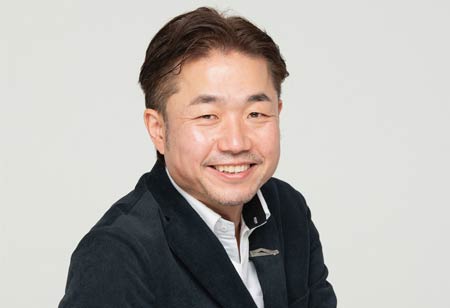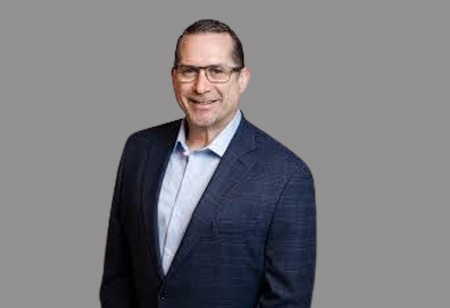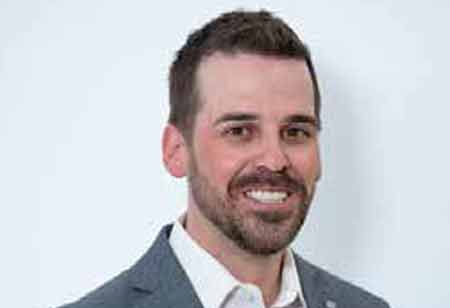THANK YOU FOR SUBSCRIBING

Cohesive Culture Key to Manufacturing under Duress
Derek Mckenney, Director of Engineering, Puritan Medical Products Co.

 Derek Mckenney, Director of Engineering, Puritan Medical Products Co.
Derek Mckenney, Director of Engineering, Puritan Medical Products Co.There’s adversity and then there was the COVID-19 pandemic in early 2020. Faced with unprecedented demand for COVID testing swabs, the federal government was desperate to supply the American people with enough swabs hundreds of millions of them.
My employer, Puritan Medical Products, was recruited for that monumental task. Our team based in rural Maine had to ramp up production from 10 million swabs to 50 million to hundreds of millions per month, and in less than a year. We had no experience building new factories or increasing capacity to such an extent.
We had a small group but what we lacked in numbers we made up for with determination. Shortly after the pandemic hit, Puritan doubled in size, installing more equipment in three months than we had in 20 years. For a family-owned company that operates as a tightly knit small business, the growth was difficult to comprehend. As it stands today, we have increased our capacity over 10x pre-pandemic levels.
At the heart of our business is manufacturing, producing not only COVID-19 testing swabs, but a wide range of products with an even wider range of applications from environmental sampling to diagnostics, forensics, and genetics. We build things. And we do it because our team has cultivated a “can-do” spirit since our inception way back in 1919. We have successfully diversified our manufacturing operations because we innovate first.
But innovation is only possible with human capital—the right human capital to serve our customers. Talent is everything. From the early days of the pandemic to now, the most significant investment that Puritan has made is quite simple, and it has nothing to do with factories or product lines. It has always been and will always be people. In recent years, our team has hired exponentially more people with science, technology, engineering, and math (STEM) backgrounds. It isn’t always easy finding STEM talent in rural Maine, but we have found a way to flesh out technical skillsets and build out a technical support team.
We also created a “corporate engineering” department, which had never existed before and which I now lead. By creating this group, Puritan is better equipped to streamline its manufacturing processes, producing more efficiently and effectively. The group is a conduit for knowledge and experiences to be shared across manufacturing sites creating synergies that otherwise wouldn’t happen.
To acquire human capital, companies like ours need to adopt a no-stones-left-unturned approach. Recruitment should take place everywhere and anywhere. For example, we regularly coordinate with local community colleges and universities to invest in talent, bringing in recent graduates, training them technically, and introducing them to the Puritan culture our “can-do” spirit.
“We build things. And we do it because our team has cultivated a ‘can-do’ spirit since our inception in 1919”
Our corporate engineering team has strategically grown by leaps and bounds since 2020. Puritan has expanded from one factor to four in total three in Maine and one in Tennessee. Throughout the expansion period, I have had to oversee the process designing, building, installing, and qualifying all our manufacturing equipment.
Traditionally Puritan had manufactured all its equipment in house, during COVID we had to learn to recreated it outside of our facility. During this process we learned the importance of clearly defined user requirement specifications. Not only that, but we had to develop new internal procedures and systems for managing machine vendors and standardizing machine documentation.
It seems like a massive amount of work, and it was. Technicalities aside, the Puritan story has really been made possible because of our team’s ability to work as a cohesive unit. Togetherness is paramount. Without a strong culture we would have never been able to respond in the way that we did.
From research and development to production, it’s important for companies focused on innovation to foster open channels of communication, with managers opening themselves up to constructive criticism and employees feeling comfortable speaking up. I may be head of the corporate engineering department at Puritan, but I try not to implement a rigid top-down approach that stifles dialogue and discourse. The more open a workplace culture, the more likely it is to result in innovation.
If manufacturing is a people business, then recruitment is only the first step. I’ve worked around the clock to build a team of diverse, talented engineers. Those engineers need to sing from the same song sheet, sharing ideas, eliminating ones that don’t work, and zoning in on the ones that add value.
The second step is empowerment— making employees feel appreciated, energetic, and innovative on the job. Managers need to bring out the creative juices of their workers, since they don’t always flow organically. Empowered workers are more productive on the job and more satisfied with it, staying for the long haul instead of just a quick paycheck. Empowerment inevitably leads to retention. Puritan’s employees are its greatest asset and retention is a top priority.
Therein lies my closing message to all manufacturers: The details matter. The only way to be the best is to have the best people. I firmly believe the true purpose of an organization is enable common people to do uncommon things, Puritan embodies this. If we think of culture as the result of successful problem solving. It is in the details of an organization where most problems reside, and as a result where the culture is grown. So go out on your manufacturing floor and dig in. I can guarantee there is an opportunity for a creative solution to better position the team for success.
Don’t let your “can-do” spirit fall by the wayside. Cultivate it, and your company will succeed in the long run during a pandemic or normal times.
Read Also






















ON THE DECK